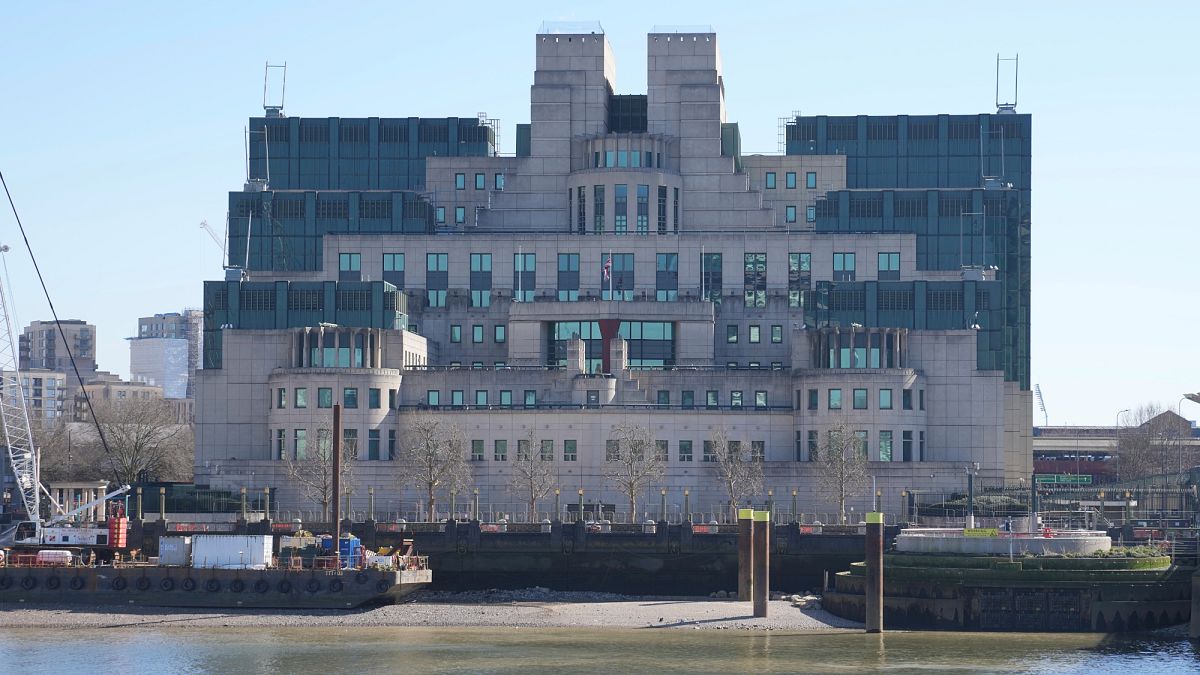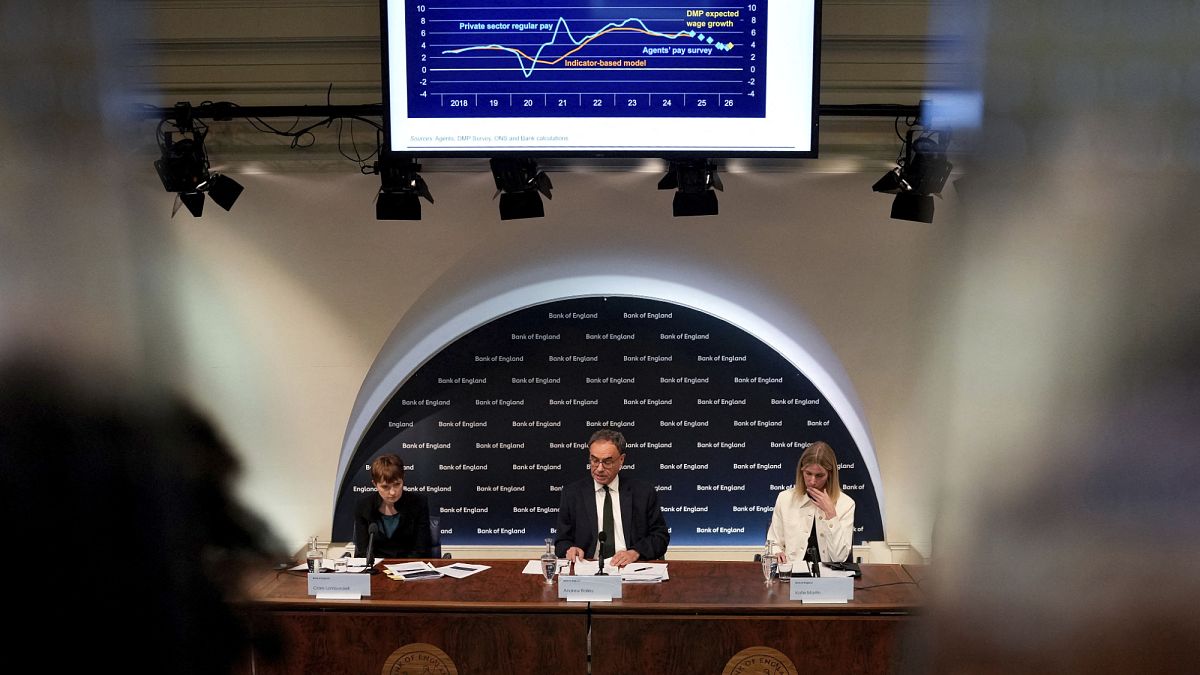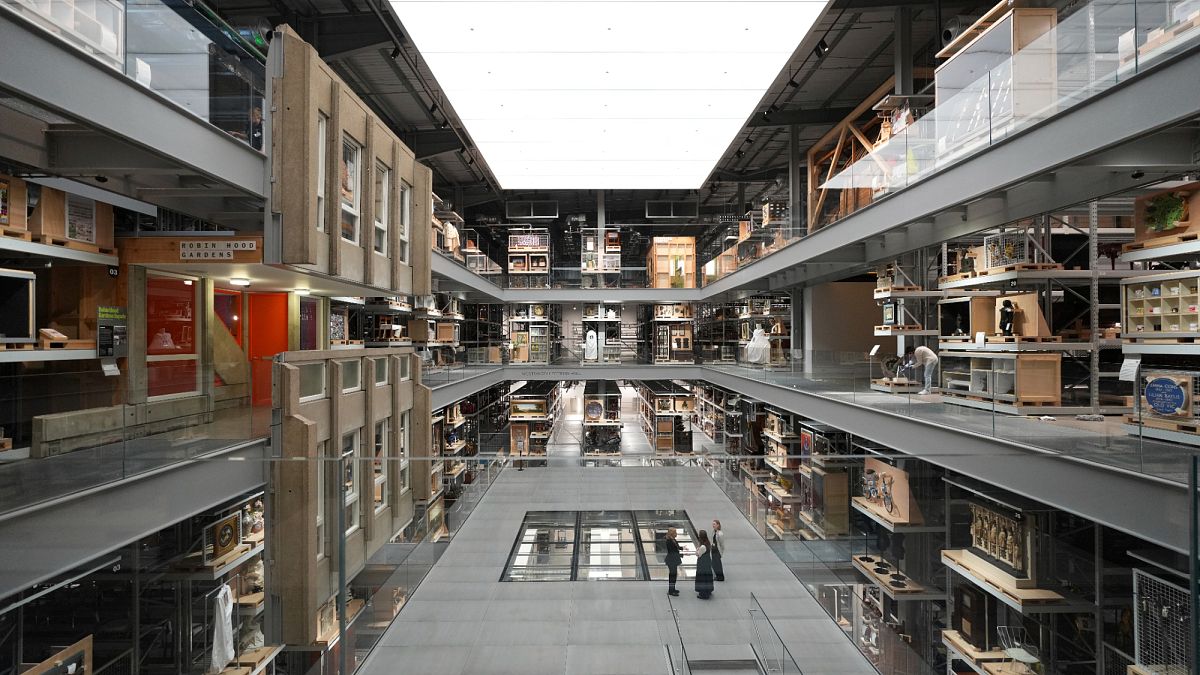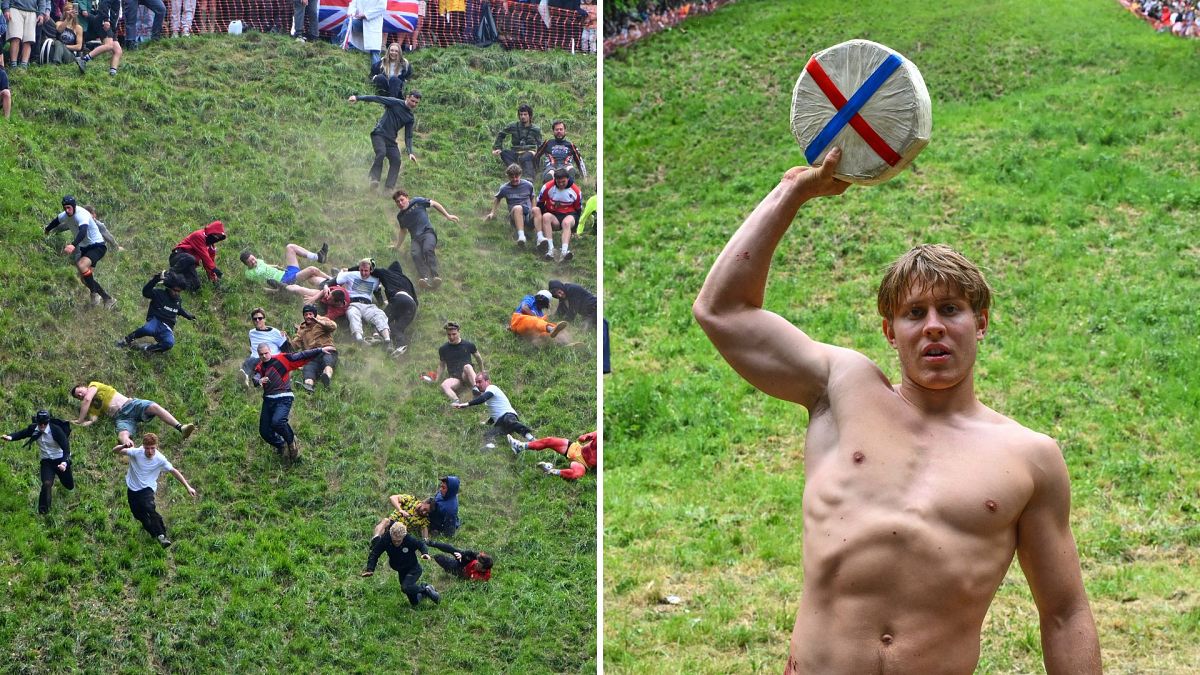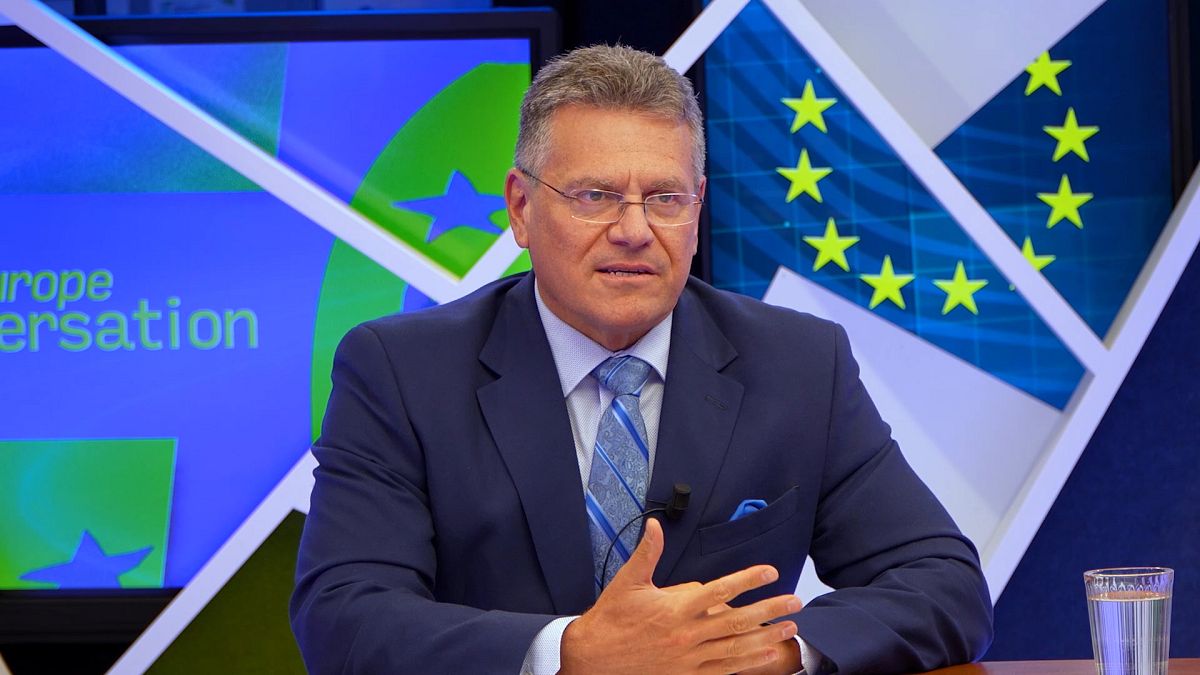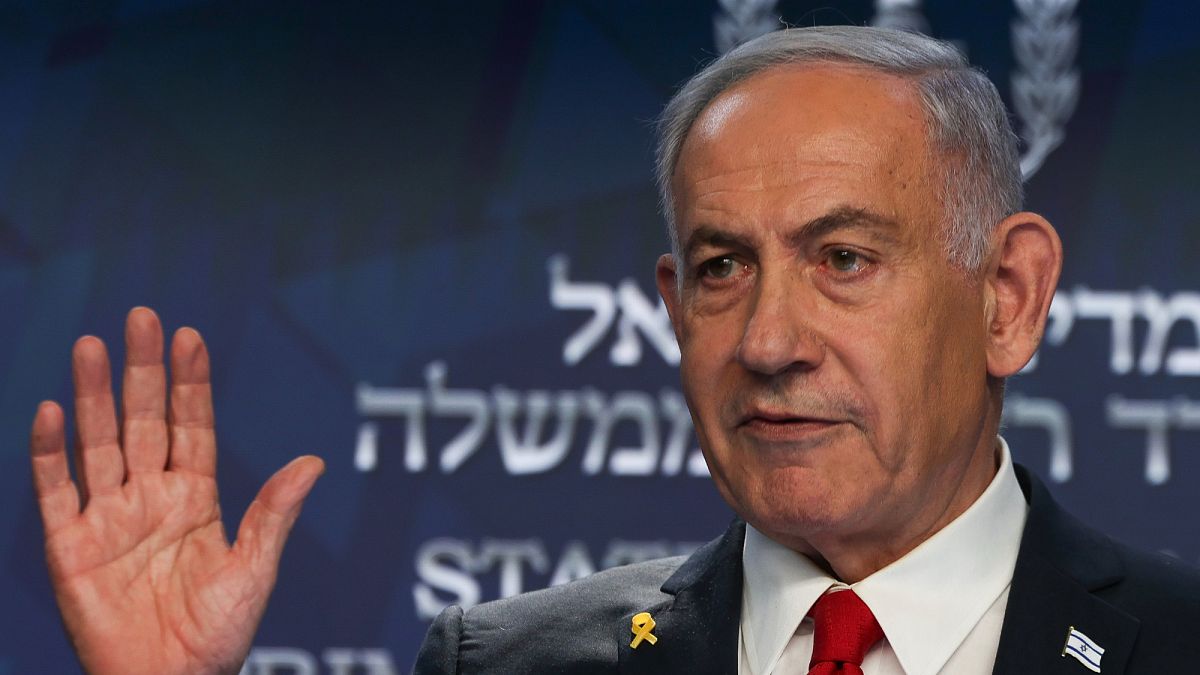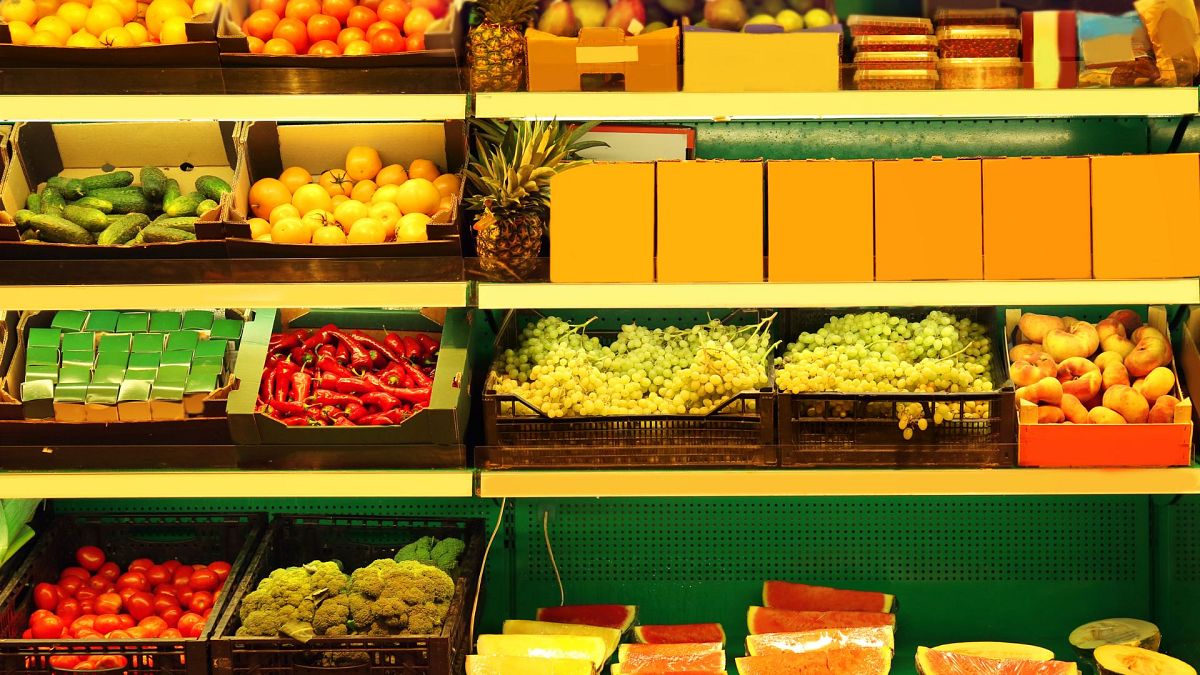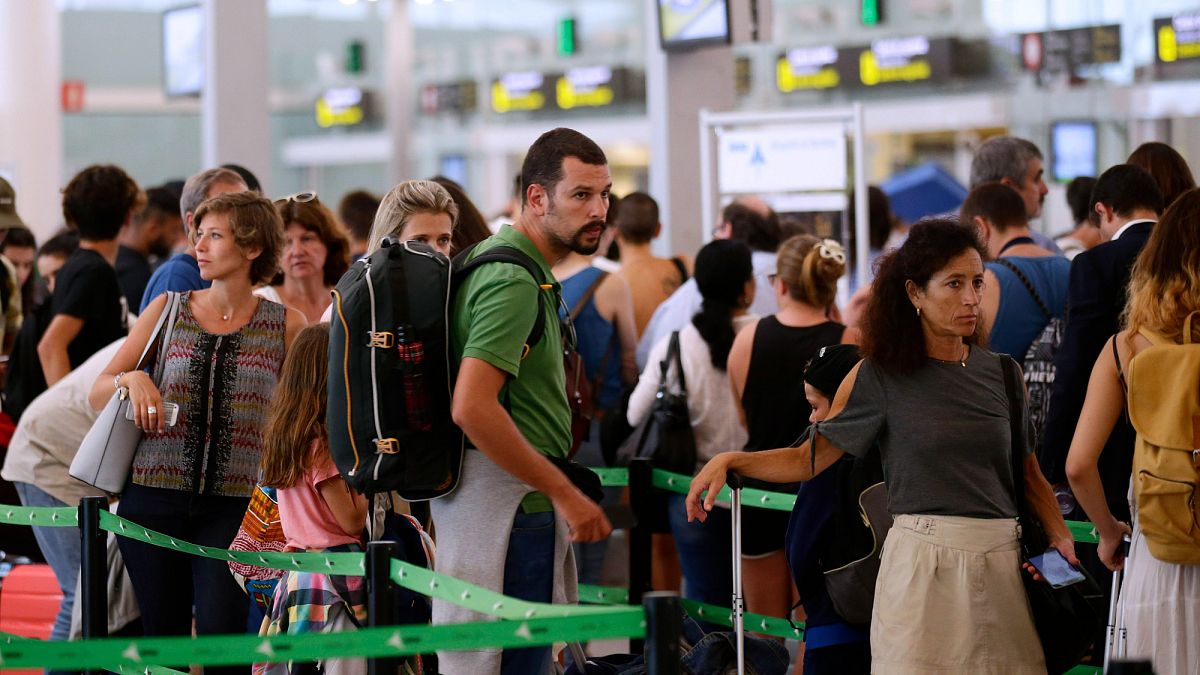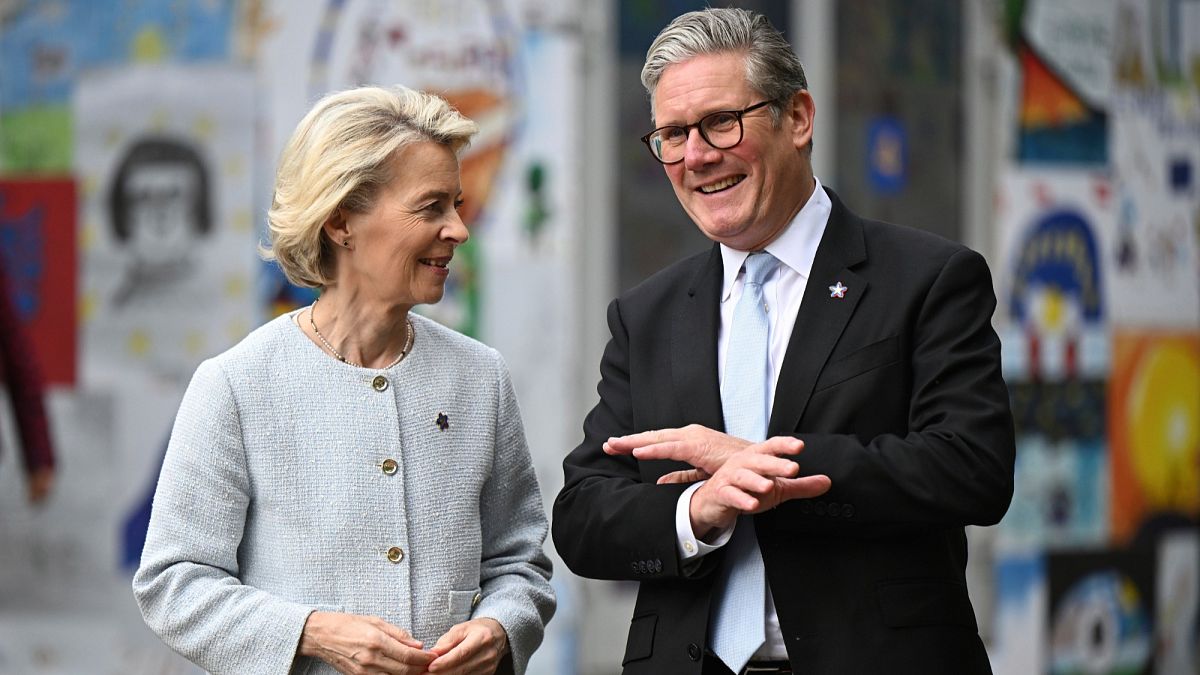Censorship and safety: How the Israel Hamas war is affecting schools
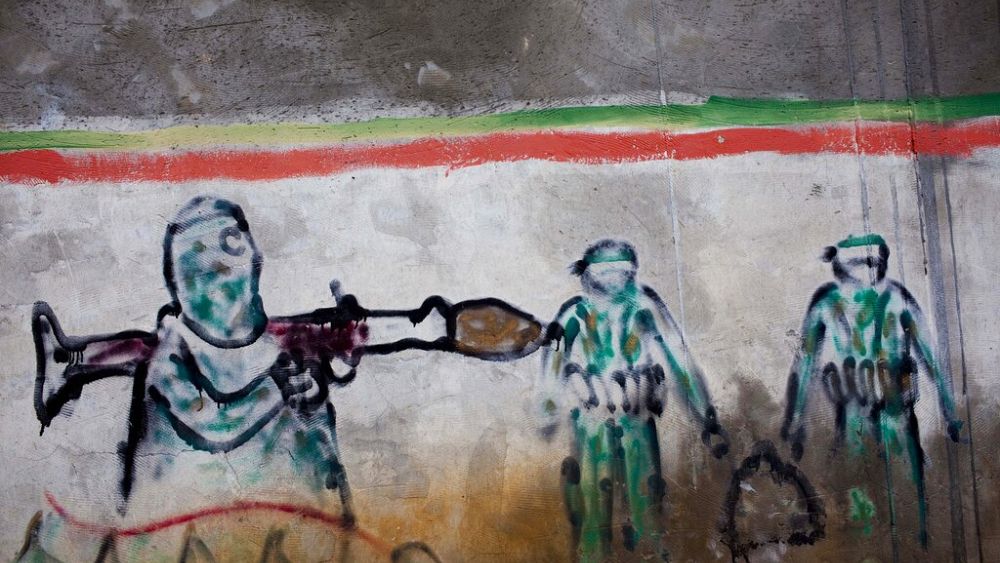
Euronews was told that pro-Palestinian views were being suppressed inside schools, with some Jewish pupils in a “dark zone of depression”.
Amy* is a teacher at a school in London.
Like many other schools in Britain, a majority of the pupils come from Muslim or Arab backgrounds.
Sympathies for Palestine run high in her classroom, amid the devastating war between Israel and Hamas.
Since the violence erupted on 7 October, younger students have often drawn the Palestinian flag on their hands, doodled it on their books or displayed Palestinian flag pins on their uniform in what she called “child-like expressions of solidarity”.
“They’re really deeply upset and worried about Palestine,” she told Euronews.
Initially, Amy said the school let the pupils express their support for those in Gaza and the West Bank.
But it has since begun cracking down on these acts under the guise of violations against uniform policy, threatening to punish the kids if they refuse. Staff have also been told not to wear the Palestine pin.
“There is a double standard,” she claimed, pointing out that students were encouraged to support Ukraine when Russia invaded in February 2022 and that staff are still allowed to display symbols and signs of other political causes, like LGBT+ rights or the Black Lives Matter movement.
“It’s presented as impartially, but in reality is deeply ideological.”
Under government rules, schools in the UK are legally bound to prohibit the promotion of partisan political views and should take steps to ensure the balanced presentation of opposing views on political issues when they are brought to the attention of pupils.
In advice issued to schools in October, Education Secretary Gillian Keegan wrote: “We know that young people may have a strong personal interest in these issues, which could lead to political activity.
“Schools and colleges should ensure that any political expression is conducted sensitively, meaning that it is not disruptive and does not create an atmosphere of intimidation or fear for their peers and staff.”
Alongside “alienating” pupils from the teachers, who often feel “insulted” when they are told to wash the flag off their hands, Amy claimed impartiality rules were “being used to silence the Palestinian crisis and prevent students from having an opinion about a genocide happening in Gaza.”
Hamas’ deadly assault on southern Israel sparked the current conflict, killing 1,400 people and taking several hundred hostage. While 2022 was the deadliest year on record for Palestinians, according to the UN, 2023 was already set to overtake that record even before Israel began relentlessly bombing Gaza.
Israeli retaliation has killed at least 11,500 people so far, mostly women and children, according to Gaza’s Hamas-controlled health ministry.
Teacher Amy placed the school’s policy towards the Israel-Hamas war against a broader “depoliticisation” of teachers and a shift towards focusing on behaviour, rather than provoking critical thinking.
“We should be having different conservations about topics related to the conflict, like how criticism of Israel is not anti-semitic, the existence of Jewish peace activists in Israel and understanding war crimes. There’s not much space for the kids to think and be curious,” she told Euronews.
Amy added that she felt “nervous about how much more repression the school community may face as the situation [in Israel and Gaza] develops.”
‘Things could get a bit lively’
Still, the teacher said many students were pushing back against the school’s policies which were becoming a “point of rebellion.”
“Things could get a bit lively. Kids are getting told off about things they weren’t getting told off about before. They feel it’s an injustice.”
The bloodshed has sparked a number of issues for Britain’s Jewish schools and pupils, too.
David Meyer, CEO of the Partnership for Jewish Schools, told Euronews that a “significant challenge” was “nervousness and discomfort” amongst Jewish pupils, especially those in non-Jewish schools.
“The enormity of the attack that took place in Israel, the shock of what happened there, immediately made anybody who’s Jewish around the world feel insecure,” he said. “That has then been coupled with a tsunami of antisemitism.”
Hate crimes against Jewish people in London have risen by 1,350%, the Metropolitan police said in October. Islamophobic offences in the UK capital increased by 140%.
Both Jewish and Muslim communities have previously complained of feeling unprotected by the authorities.
‘Very, very complex’
Student wellbeing was also an issue said Meyer, with children exposed to “absolutely horrendous” footage of the Hamas “terrorist attack”.
“We are very worried about the impact on children’s mental health. Some are constantly thinking about the hostages, worrying about them. We are trying to help the children understand how to compartmentalise things in their lives so that they are not constantly in this dark zone of depression.”
Some 240 people were taken hostage by Hamas and brought to Gaza when it attacked southern Israel in early October, according to Israeli authorities. A few have been freed, while the Palestinian militant group claims several others have been killed in Israeli airstrikes. The fate of the rest is unknown.
Amid a surge of what he called “ignorance” and “misinformation” around the conflict, Meyer said it was vital to educate students, especially on the “dangers of social media”.
For him, it was “vital to ensure children are given a proper informed and balanced education so that they understand actually what is going on.”
He said the “history of Israel” and the “different narratives” and “perspectives” within that were “very, very complex”.
“Being able to educate children around this and for them to understand the difference between having open and honest conversations, disagreements and a disparity of views, and a recognition of that is healthy.
One obstacle he cited is that schools in England are blocking lessons on the Middle East, such as the history of the Israeli-Palestinian conflict.
In November, the Observer newspaper reported that fewer than 2% of GCSE history students in England studied a module on the Middle East in 2020, and experts estimate that only 27 schools in England currently teach it.
It claimed schools were concerned about “bad publicity” or afraid of being accused of bias.
“It’s absolutely true that the students have [to be] taught different narratives to really try and interrogate those to find sensible solutions,” Meyer added.
*The teacher’s name has been changed as she was not authorised to talk directly to the media and was concerned about repercussions from her employer.
Source: Euro News


